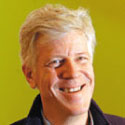How are Humans Affecting Ocean Salinity?

President
Earth and Space Research
Earth and Space Research
Dr. Lagerloef completed a Ph.D. in Physical Oceanography at the University of Washington in 1984. In 1995, he co-founded Earth and Space Research, a non-profit scientific research institute in Seattle where he has developed several research projects devoted to studies of the upper ocean dynamics and climate variability using satellites.
Webinar Clip
How does understanding salinity help us to better understand human-induced climate change? Dr. Lagerloef explains in this clip. As Principal Investigator for the NASA Aquarius satellite mission, he works to understand the salinity data and what it means for how humans are shaping Earth's climate. In this clip, Dr. Lagerloef discusses a variety of consequences resulting from human-induced climate change and links those back to why it is so important to study ocean salinity.Full webinar: How Does Understanding Salinity Help Us Understand Climate Change?
Click here for a transcript of this clip (PDF, 49.2 KB). |
Resources
Applicable Science Standards
 Analyzing and Interpreting Data. Scientific investigations produce data that must be analyzed in order to derive meaning. Because data patterns and trends are not always obvious, scientists use a range of tools - including tabulation, graphical interpretation, visualization, and statistical analysis - to identify the significant features and patterns in the data. Scientists identify sources of error in the investigations and calculate the degree of certainty in the results. Modern technology makes the collection of large data sets much easier, providing secondary sources for analysis.
Analyzing and Interpreting Data. Scientific investigations produce data that must be analyzed in order to derive meaning. Because data patterns and trends are not always obvious, scientists use a range of tools - including tabulation, graphical interpretation, visualization, and statistical analysis - to identify the significant features and patterns in the data. Scientists identify sources of error in the investigations and calculate the degree of certainty in the results. Modern technology makes the collection of large data sets much easier, providing secondary sources for analysis. Constructing Explanations and Designing Solutions. The goal of science is the construction of theories that provide explanatory accounts of the world. A theory becomes accepted when it has multiple lines of empirical evidence and greater explanatory power of phenomena than previous theories.
Constructing Explanations and Designing Solutions. The goal of science is the construction of theories that provide explanatory accounts of the world. A theory becomes accepted when it has multiple lines of empirical evidence and greater explanatory power of phenomena than previous theories. Obtaining, Evaluating, and Communicating Information. Scientists and engineers must be able to communicate clearly and persuasively the ideas and methods they generate. Critiquing and communicating ideas individually and in groups is a critical professional activity.
Obtaining, Evaluating, and Communicating Information. Scientists and engineers must be able to communicate clearly and persuasively the ideas and methods they generate. Critiquing and communicating ideas individually and in groups is a critical professional activity.